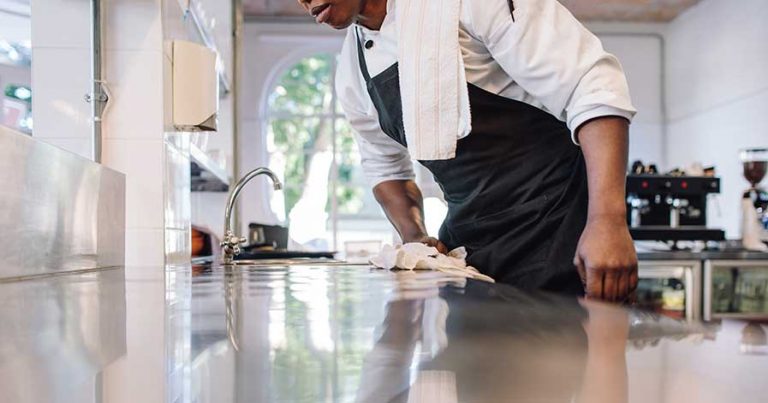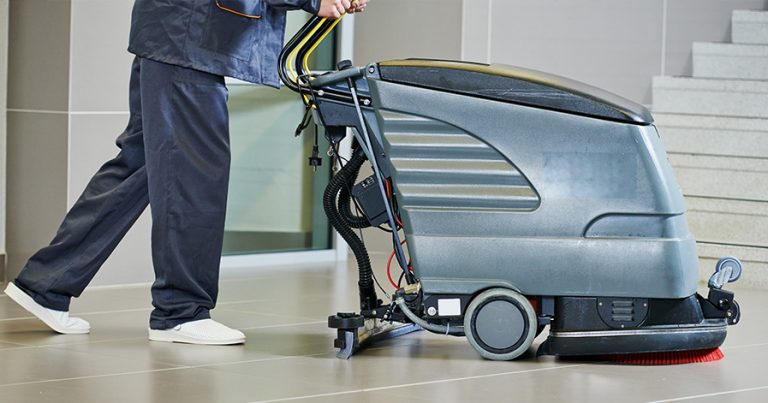Having a Clean Restaurant is Essential for Business
The Importance of Restaurant Cleaning
Maintaining optimal cleanliness in a restaurant is essential. Many daily, weekly, and monthly tasks require attention, such as grease trap cleaning and hood cleaning. If these tasks are neglected, the repercussions could be serious for staff, your patrons, and the business. Now, let’s look at why restaurant cleaning is important, and what tasks should always be completed.
Front of House
If the front-of-house area of your restaurant isn’t spotless, customers are likely to assume your kitchen is dirty or unsanitary too. A bad first impression could make customers leave before even trying your food.
Cleaning is incredibly important in a restaurant for preventing cross-contamination and passing health inspections. An unsanitary kitchen can quickly lead to the growth of hazardous bacteria. A health inspector will have no hesitation in closing down your restaurant if your food poses a health risk to your patrons.
Hiring a Professional Cleaning Service
Depending on your business needs and budget, you will need to decide exactly what type of professional cleaning you need, and when you need it. In your back-of-house area, some tasks must be done daily, while others can be done on a weekly or monthly basis.
Daily tasks may include: sweeping and mopping floors, sanitizing counter tops and metal surfaces, taking out the trash, cleaning sinks, and wiping down equipment.
Weekly tasks may consist of deep cleaning equipment such as ovens, fryers, and broilers.
Monthly tasks may include: emptying grease traps, cleaning vent hoods, washing walls and ceilings to remove grease buildup, and cleaning and sanitizing freezers.
You can prepare a full restaurant cleaning checklist to make sure you have all your bases covered.
In-house Staff Responsibilities
It makes sense for in-house staff to take responsibility for certain areas of cleaning, especially when it comes to daily tasks. You should compile a cleaning schedule for them, display it in a visible area, and make sure each task is checked off and signed by the responsible team member.
It helps to train your staff to use equipment correctly. For example, teach them they should never to dispose of used cooking oil in a fat trap or down a drain. If you don’t hold your staff members accountable for cleaning, it has the potential to cause complacency.
When to Hire a Professional Cleaning Service
Commercial cleaning services that cater to the restaurant industry are well-equipped to thoroughly de-grease and sanitize kitchens.
They are accustomed to working with restaurants, so they are prepared to accommodate your schedule and individual needs. It makes sense to use them to do some of the weekly and monthly tasks. You may even have the budget to use them for some of the daily tasks.
They often offer flexible services, such as doing a deep-clean of your kitchen once a month, which helps you decide how often to use them depending on your budget and restaurant size.
There are certain tasks that professional cleaning services are better equipped for, such as cleaning a fat trap. Calling in a professional service to clean it regularly will ensure that you don’t experience any downtime due to a blocked fat trap.
If you map out your entire space, you can decide when you need to use professional services for restaurant cleaning. When you reach out to them, you will know exactly what types of services you’re looking for, and how often you want to receive them.
Grease Trap Cleaning
Restaurants generate plenty of cooking oil. When fat, oil, and grease are suspended in water, they congeal as they cool. If you dispose of fat down the sink or the drain, you not only risk the possibility of your business temporarily closing due to a blocked drain, but you also break the law. It’s illegal to dispose of fat, oil, and grease this way in many areas.
Proper care of your grease trap prevents foul odors and makes sure that your whole drain system is flowing as it should. When a grease trap overflows, it causes many problems, so it’s important to make sure it’s cleaned properly. A clogged grease trap can compromise both health and safety of staff and diners. Cleaning grease traps and disposing of the trap waste is therefore one of the most important parts of managing a commercial kitchen.
How to Dispose Used Cooking Oil
You are required by law to clean and remove trap waste in an appropriate manner. Rather than thinking about how to dispose of used oil, you should be thinking in terms of how it can be recovered and reused.
It’s possible to partner up with a used cooking oil (UCO) collector and recycling company. The used oil they collect may be used to make friendly bio-fuels, or to manufacture other industrial applications.
You can keep your used oil safe in secure storage tanks, which are usually provided by the service provider. All food grease goes into the tank where it’s stored until the service provider comes as per a defined schedule for pick up.
The advantages of using a service like this include avoiding any fines and downtime, not having bad smells that come from clogged drains, realizing the potential of rebates for your used cooking oil, and supporting sustainability.
Hood Cleaning
Your restaurant exhaust hood needs to be well-maintained to protect your kitchen. Exhaust system fires can cause extensive damage not only to your kitchen, but to roofs and surrounding areas as well.
During the exhaust hood cleaning process, professionals use special grease-cutting agents and high-pressure, high-temperature water to get rid of greasy buildup. They will work all the way from the exhaust fan, down through the ductwork, and finish with the hood itself.
Once clean, your exhaust system is fully compliant with all fire safety codes, health inspection regulations, and insurance requirements. You won’t face the risk of a fine or having to close your business temporarily. A clean, well-maintained exhaust system works optimally and extends the life of the equipment.
A Final Word
Cleanliness and sanitation must to be a top priority for restaurant owners. Organization, scheduling, consistency, some elbow grease, and help from professional services where necessary can always make it possible to keep your restaurant sparkling and inviting.

